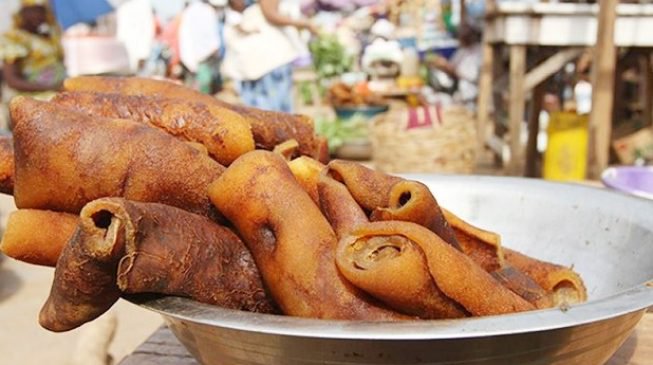Economic Impact of ‘Ponmo’ Consumption
Nigeria’s Minister of Agriculture and Rural Development has revealed a startling fact. The widespread consumption of animal hides and skins, known as ‘ponmo’ or ‘kpomo’, costs the nation dearly. This practice drains at least ₦23 billion annually from the economy. It also robs the country of about 700,000 potential jobs in the leather industry.
This announcement has shocked the economic sector. It highlights the hidden costs of a popular culinary tradition. Many Nigerians cherish ‘ponmo’ for its chewy texture and perceived nutritional value. However, its consumption now links to significant economic losses and missed opportunities in the leather industry.
Challenges Facing Nigeria’s Leather Sector
Nigeria’s leather sector once thrived as a key component of the economy. In recent years, it has faced numerous challenges. The industry includes the production of hides, skins, and finished leather goods. Experts have identified it as a potential major foreign exchange earner for the country. However, the growing trend of eating these raw materials severely undermines its potential.
The Nigeria Economic Summit Group (NESG) had projected bright prospects for the leather industry. They estimated it could generate over $1 billion by 2025. The current trend now threatens this projection. The industry employs over 750,000 workers, with about 500,000 in the finished leather goods sector. It now faces a significant setback due to raw material shortages.
Economic Implications Beyond Revenue Loss
Experts argue that consuming hides and skins affects more than just tanneries. It impacts the quality of leather products made in Nigeria. This, in turn, reduces the competitiveness of Nigerian leather goods in the international market.
The economic implications extend beyond immediate revenue loss. The leather industry contributes about 24% to Nigeria’s agricultural GDP. Moreover, it ranks as the second major foreign exchange earner after oil. In recent years, total exports of tanned skins amounted to about $240 million.
Government Response and Public Debate
The minister’s statement has reignited discussions about public awareness and policy interventions. Many industry stakeholders call for a comprehensive approach. They suggest public education on the economic value of hides and skins. They also propose developing alternative protein sources for consumers.
However, the issue is complex and multifaceted. ‘Ponmo’ consumption is deeply rooted in Nigerian culture and cuisine, especially in the southern parts. Efforts to curb its consumption may face resistance from consumers who view it as an affordable protein source.
Balancing Tradition and Economic Growth
The government faces a delicate balancing act. It must weigh preserving cultural practices against promoting economic growth. Some experts suggest a gradual approach. They favor education and providing alternatives over an outright ban.
The leather industry’s potential extends beyond immediate economic gains. With proper investment and policy support, it could help diversify Nigeria’s economy. The industry can create jobs across various skill levels, from rural hide collectors to skilled artisans.
Nigeria’s Position in the Global Leather Market
A thriving leather industry could position Nigeria as a major player globally. Nigeria has the largest resource of goatskin and kidskin in Africa. This represents 46% of the total in West Africa and 18% in Africa. This gives Nigeria a significant comparative advantage in this sector.
Realizing this potential requires addressing more than just ‘ponmo’ consumption. Other challenges include structural barriers, poor visibility, and lack of modern processing facilities. The industry also needs technological upgrades.
Future Outlook and Government Plans
The debate over ‘ponmo’ consumption versus leather production touches on culture, nutrition, and national development. Industry stakeholders, consumers, and international observers will closely watch the government’s approach.
In the coming months, the government is expected to unveil more detailed plans. These may include incentives for leather production and regulations on hide and skin use. Programs to promote alternative protein sources may also feature.
The resolution of the ‘ponmo’ dilemma could test Nigeria’s ability to balance tradition with economic needs. The outcome could significantly impact Nigeria’s economic future and its position in the global leather market.


